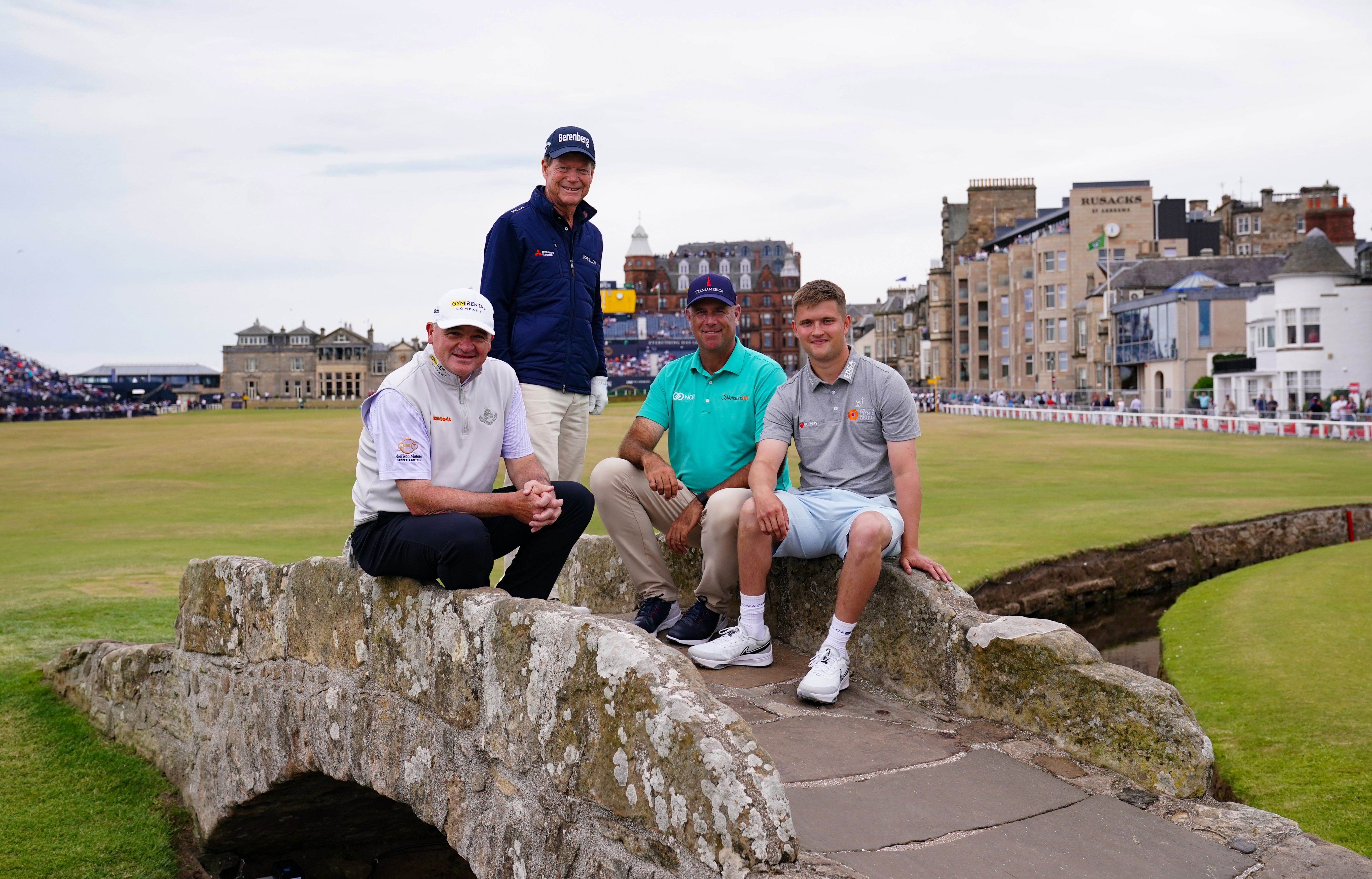World number two Kipp Popert lauds inaugural US Adaptive Open as ‘another level’
The 24-year-old from Kent partnered Tom Watson, Stewart Cink and Paul Lawrie in the Celebration of Champions ahead of the 150th Open at St Andrews

Your support helps us to tell the story
From reproductive rights to climate change to Big Tech, The Independent is on the ground when the story is developing. Whether it's investigating the financials of Elon Musk's pro-Trump PAC or producing our latest documentary, 'The A Word', which shines a light on the American women fighting for reproductive rights, we know how important it is to parse out the facts from the messaging.
At such a critical moment in US history, we need reporters on the ground. Your donation allows us to keep sending journalists to speak to both sides of the story.
The Independent is trusted by Americans across the entire political spectrum. And unlike many other quality news outlets, we choose not to lock Americans out of our reporting and analysis with paywalls. We believe quality journalism should be available to everyone, paid for by those who can afford it.
Your support makes all the difference.World number two Kipp Popert has praised the inaugural US Adaptive Open for taking tournaments for golfers with a disability to “another level”.
Popert won the first two G4D Tour (Golf for the Disabled) events this season and partnered Tom Watson, Stewart Cink and Paul Lawrie in the Celebration of Champions ahead of the 150th Open at St Andrews.
But the 24-year-old from Kent was taken aback by the scale of the US Adaptive Open at Pinehurst earlier this month, where he won the category for players with a neurological impairment and finished fourth in the overall men’s event.
“We were taken aback when we arrived a few days before the start,” Popert, who has a form of cerebral palsy called spastic diplegia which impairs the muscular movement in his legs, told the PA news agency.
“We thought we might be the only ones there but it was packed and just showed how seriously everyone was taking it.
“When we got to the range and asked for a bucket of balls they asked if we wanted Pro V1s or Pro V1x and they didn’t have to do that. The fact they did made everyone feel very special and kudos to the USGA for that.
“There were 10 registration desks for the players and the USGA staff were brilliant at making sure everyone knew what was happening and were comfortable with what they were doing, because for some players this was their first tournament experience.
“I think there were around 400 volunteers, proper equipment testing and a referee with each group. The whole event was amazing, another level.”
The costs involved with travelling to the United States and a lack of world ranking points on offer meant some European players opted not to make the trip to North Carolina, but there was no way Popert was going to miss out.
“I always want to play against the best players and in the biggest competitions throughout the world,” added Popert, who was the first golfer with a disability to compete in the Amateur Championship and narrowly failed to qualify for the US Amateur.
“It was also the inaugural one and I managed to win the neurological category and no one will ever be able to have that honour again.
“I’m trying to grow the sport. I’m in a fortunate position that I’ve worked very hard to achieve a fair bit and that’s really helped my standing and the opportunities that have come my way, but disability golf will only be a success in my eyes if we can get more people into the game and also the best players competing against each other more often.”
Join our commenting forum
Join thought-provoking conversations, follow other Independent readers and see their replies
Comments